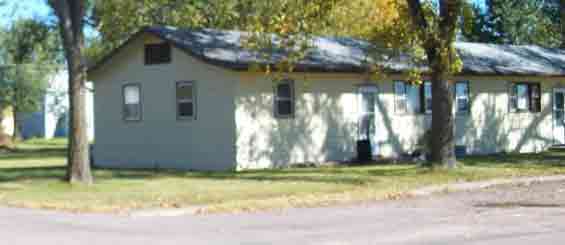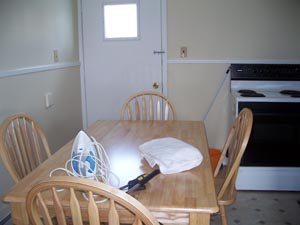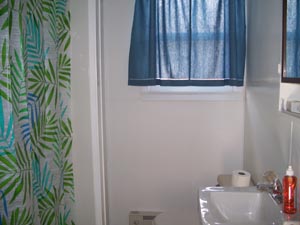
FOOD PANTRY
Located at the Resource Center, the Food Pantry is open twice a week:
Mondays and Fridays, 1-4pm.
Donations Needed for the Food Pantry: A Message from Our Director
There is nothing worse than for a child to go to bed hungry. The Resource Center has had a Food Pantry for the past 15 years to help feed families that just do not have enough food to last to the end of the month. Over the years we have always had enough funding to keep our shelves stocked to feed those that need our assistance. However, with the wars going on in the Middle East a lot of the food supplies we were receiving from the USDA Commodity Food Program is going to feed the Military. We need your donations so we can purchase food from the Food Bank in Sioux Falls, South Dakota, because our free source of food (USDA) is just not there any longer (or at least as long as the war is going on). A monetary donation will help us to provide a box of groceries to a family. What a situation to have in a country with so much wealth! No child should have to go to bed hungry. Please help us feed our children.
Pidamaya (Thank You)!
Charon Asetoyer

VIOLENCE PREVENTION
The Women’s Lodge is a shelter to protect women and children fleeing from sexual assault and domestic violence. According to the U.S. Department of Justice, Native Americans are raped at a rate nearly double that of rapes reported by all races annually – 3.5 per 1,000 for Natives and 2 per 1,000 for all races. Actual numbers are much higher because 84% of rapes go unreported. Three-fourths of Native women have experienced some type of sexual assault and or domestic violence in their lives. The Women’s Lodge provides a safe haven for Native women and children while providing a number of services. Our services include but are not limited to; sheltering, medical referrals, court advocacy, and legal referrals, transportation, support groups, job readiness, crisis hotline, community education, men’s re-education groups, relocation, services and transitional housing. The Women’s Lodge can sleep 18 women and children before anyone has to sleep on the floor, two-thirds of our residents are children because most women bring their children to protect them from the abuser’s violence.

SHELTER FOR VICTIMS OF DOMESTIC VIOLENCE
The Women’s Lodge provides shelter for women and families suffering from domestic abuse and or sexual assault. In addition to shelter and food, services include: rape advocacy, support groups, legal advocacy, and referrals to other service agencies. The Women’s Lodge can sleep 18 women and children before anyone has to sleep on the floor. Two-thirds of our residents are children, since most women bring their children to protect them from the abuser’s violence.The Women’s Lodge crisis hotline can be reached 24 hours a day, 7 days a week at (605) 487-7130.
For emergencies call Law Enforcement at (605) 487-7625 or 911.
According to the U.S. Department of Justice, Native Americans are raped at a rate nearly double that of rapes reported by all races annually – 3.5 per 1,000 for Natives and 2 per 1,000 for all races. Actual numbers are much higher because 84% of rapes go unreported. Three-fourths of Native women have experienced some type of sexual assault and or domestic violence in their lives.

TRANSITIONAL HOUSING
Dear Sisters and Allies,
I’m writing to you today because of an urgent opportunity facing the Yankton Sioux Community that will greatly benefit the many local women and children who are victims of domestic and sexual violence. After reading this letter, I hope that you will agree with me that this project is worthy of your financial and moral support. Right now, many victims of domestic violence and sexual assault turn to the Women’s Lodge shelter run by the nonprofit Native American Women’s Health Education Resource Center (NAWHERC). Besides offering emergency, temporary housing, the Women’s Lodge is a catalyst for holistic services for victims, offering mentoring, alcohol abuse education, job readiness skills building, GED preparation, food pantry services and other programs that assist women and families. The Women’s Lodge can sleep 18 per night before anyone has to sleep on the floor. Two-thirds of our residents are children, because most women bring their children to protect them from the abuser’s violence.

But too many women and children are forced to return home to the abuser because of the lack of transitional housing after their stay at the shelter. That’s where our opportunity (and you) come in. With your gift, NAWHERC will purchase four two-bedroom units that will help transition women and their children from the Women’s Lodge to independence. The units are in the town of Lake Andes, four blocks from the Law Enforcement Center, Close to NAWHERC’s office, five blocks from the grade school, three blocks from the city pool and walking distance to the post office, the grocery store and right across the street from the medical clinic. Most women that come to the Women’s Lodge do not own a car, so the location of this housing is perfect. The cost of these units is extremely affordable: only $35,000. They ne
Thank you,
Charon Asetoyer
Executive Director

P.S. These safe and affordable homes, purchased with your gift, will help women and children fleeing from domestic violence and sexual assault to permanently escape their violent relationship and achieve independence. Please give at whatever level is significant to you to make this happen. Thank you for caring.

MEN’S RE-EDUCATION GROUP
NAWHERC hosts a weekly men’s re-education group, also known as a Batterers Intervention Program (BIP). Taught by Richard Milda (pictured below), this class uses an interactive curriculum with a strong cultural focus to intervene with and prevent domestic violence.
These groups give men an opportunity to examine their roles and attitudes toward women and themselves. Discussion topics include: individual respect, fatherhood, and creating a future that is peaceful and nurturing for all.
This service is open to all men, Native and non-Native, living in the Ihanktonwan community and surrounding areas of the greater community. The program is 26 weeks long, but new participants can start any given week.
This class meets every Wednesday from 6-8 pm at the Resource Center. Call NAWHERC at 487-7072 for more information.
Richard Milda, Crow, Oglala, Shoshone
Dakota Tiwahe Service Unit-DV/SA Program Coordinator

COMMUNITY EDUCATION
Community education is the heartbeat and driving philosophy behind the organization’s work. Information is power—the more information people know about an issue the more informed their decisions will be.
Building a movement starts with knowledge about an issue that has its roots in a common ground. Community-based coalitions arise at the grassroots level and center around common ground. Social change often starts at the kitchen table, moving out into the community and then onto the greater masses.
You can often hear the most political conversations in the Resource Center’s kitchen or at the table during a community feed. In the Resource Center’s kitchen you can always find a group of Indigenous women sharing a story about their family’s history, planning some kind of social change, or discussing current events related to the business of women, environmental issues, Federal Indian policy, and Supreme Court decisions. And it doesn’t stop there–such conversations are often just the beginning of groundbreaking community education work that happens at the Resource Center.

TRADITIONAL FAMILY LIVING GROUP
Traditional Family Living focuses on convening women in small groups on a regular basis to engage in dialogue and traditional teachings. This program assists Native women in the transition from abusive relationships with their spouses to supportive single parenting family structures. The program also assists women in developing economic independence and helps them to overcome the barriers to positive independent parenting.



